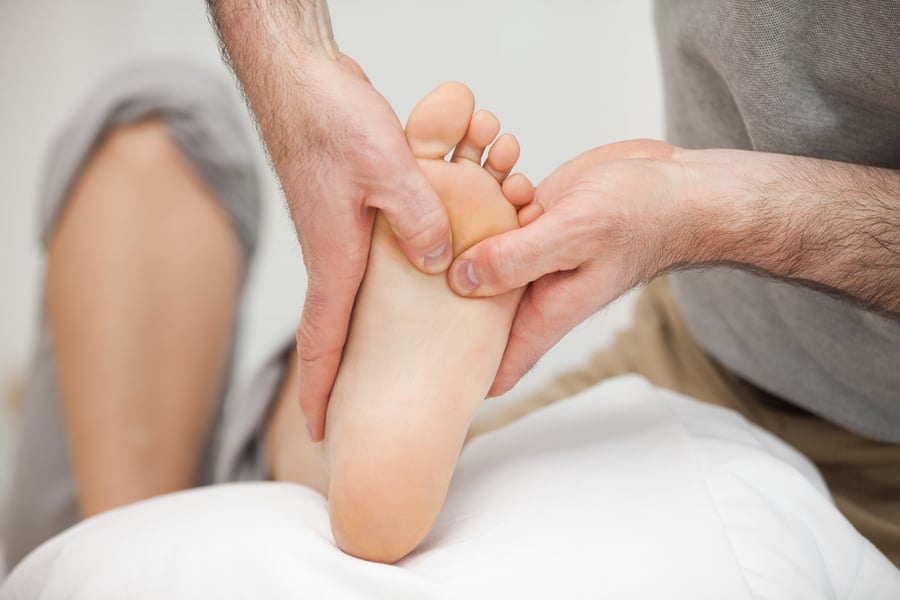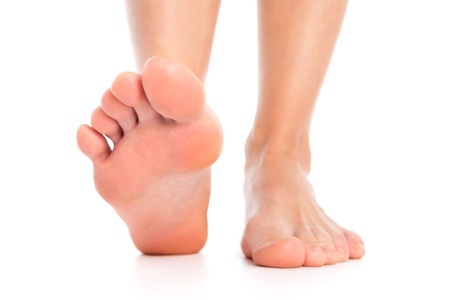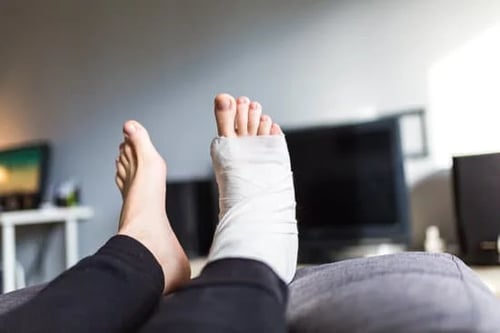
The foot, with its hundreds of bones, ligaments, tendons and muscles, is one of the most complex parts of the human body. Unfortunately, that intricacy means that more can go wrong with this hard-working part of your anatomy.
Yet too many people ignore stiffness and soreness in their feet, not realizing that there are a number of potential explanations as well as effective treatments for most causes of foot stiffness.
Natural Fluid Shifts
If your foot stiffness tends to happen mostly in the morning, chances are you don’t have a serious issue. Most adults experience this phenomenon at least once in a while, although it may happen more frequently in people with mild arthritis.
During the night, the fluid that normally lubricates your joints isn’t as plentiful in your feet as it is when you’re vertical. It often takes a few steps, in fact, before those fluids redistribute to provide the “grease” that your feet need to be more flexible and pain-free. If walking a bit after getting out of bed doesn’t resolve the problem, ask your doctor if you should see a foot specialist.
Osteoarthritis
The most common form of arthritis, osteoarthritis, affects the cartilage protecting the body’s joints. Because cartilage appears at the ends of bones, osteoarthritis-impacted joints often don’t work as fluidly as they once did. 
For people with osteoarthritis in one or both feet, the largest toe is often the first to be affected. Not only may you feel pain in your toe, but the instinctive adjustments your feet make to avoid that pain tends to alter your walking pattern. In turn, your entire foot can become stiffer due to the more unnatural foot positions.
Rheumatoid Arthritis
Rheumatoid arthritis is the type of arthritis that attacks the lining of the joints. The resulting inflammation can deform joints and erode bones. When it affects the feet, the most common impact is on the arch, which begins to collapse.
For people suffering with rheumatoid arthritis in the feet, the collapsed arch may cause a range of problems, especially stiffness, soreness and a decrease in mobility. Bunions, corns and calluses may also result.
The Wrong Footwear
People of all ages can suffer from shoes that don’t fit properly. Over time, minor irritations can turn into chronic problems. Shoes, sneakers or boots that are too small or large in the heel or arch areas are the biggest culprits. That kind of improper alignment adds up a lack of support, as well as irritations on the soul or sides of your feet.
High heels can cause additional problems. The “tiptoe” position these shoes put your feet into may cause your Achilles tendon to gradually shrink over time. In turn, you can feel pain and stiffness from problems such as scars forming on the internal connective tissue along the bottom of your foot, as well as surface callouses.
Finding Solutions
While it’s distressing to have to cope with foot pain and stiffness, a combination of home remedies like icing and over-the-counter medicine such as ibuprofen, often brings pain relief and increased flexibility.
If home treatment and switching up your footwear doesn’t help, contact Sweeney Foot and Ankle Specialists . A professional diagnosis and targeted treatment plan will set you on your way to conquering that stiffness and pain.






